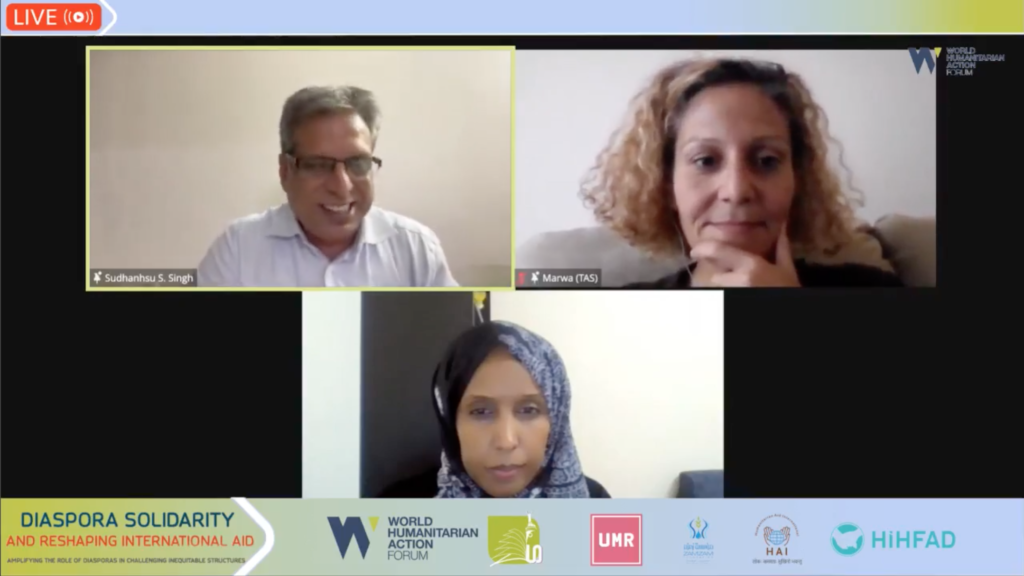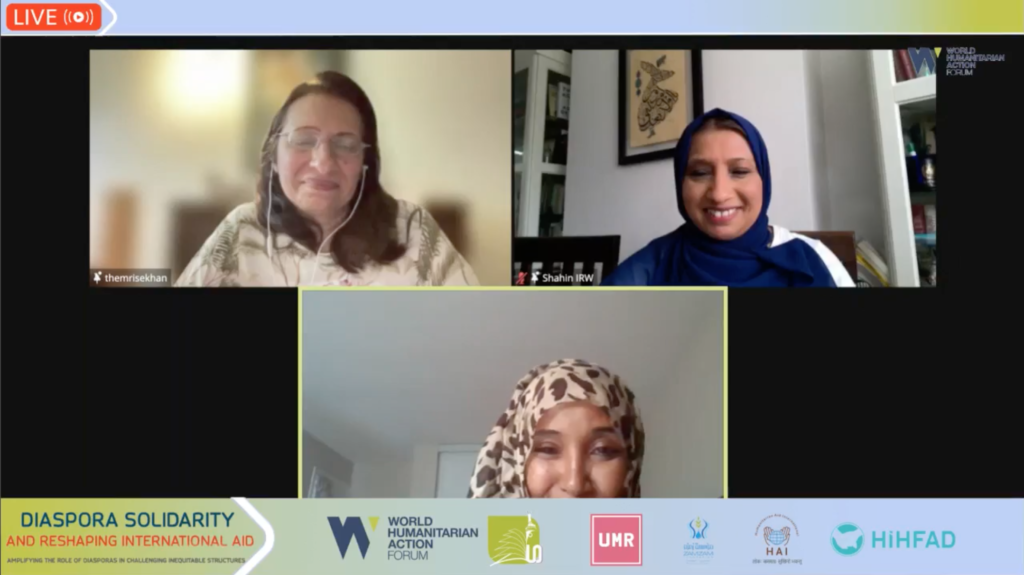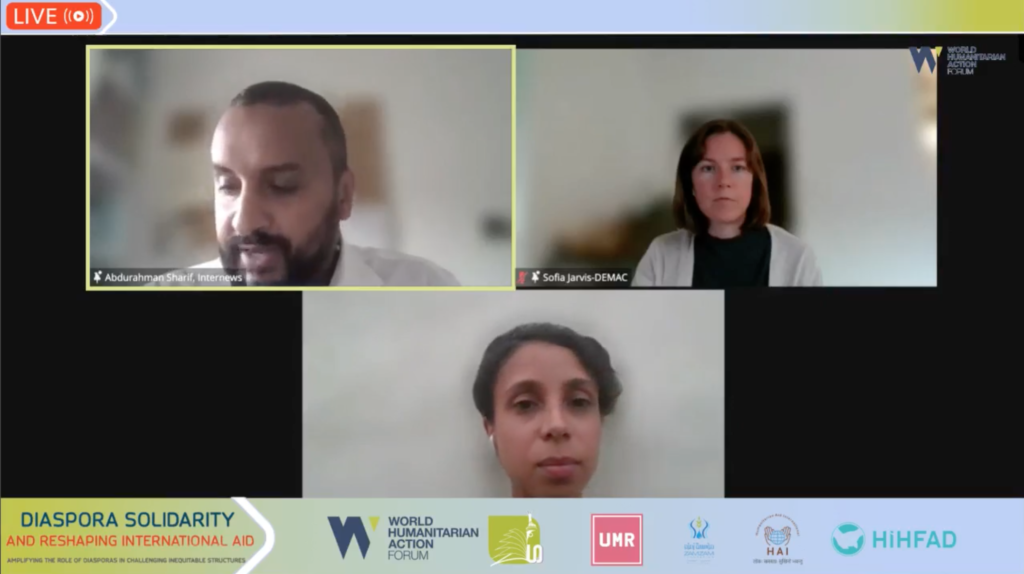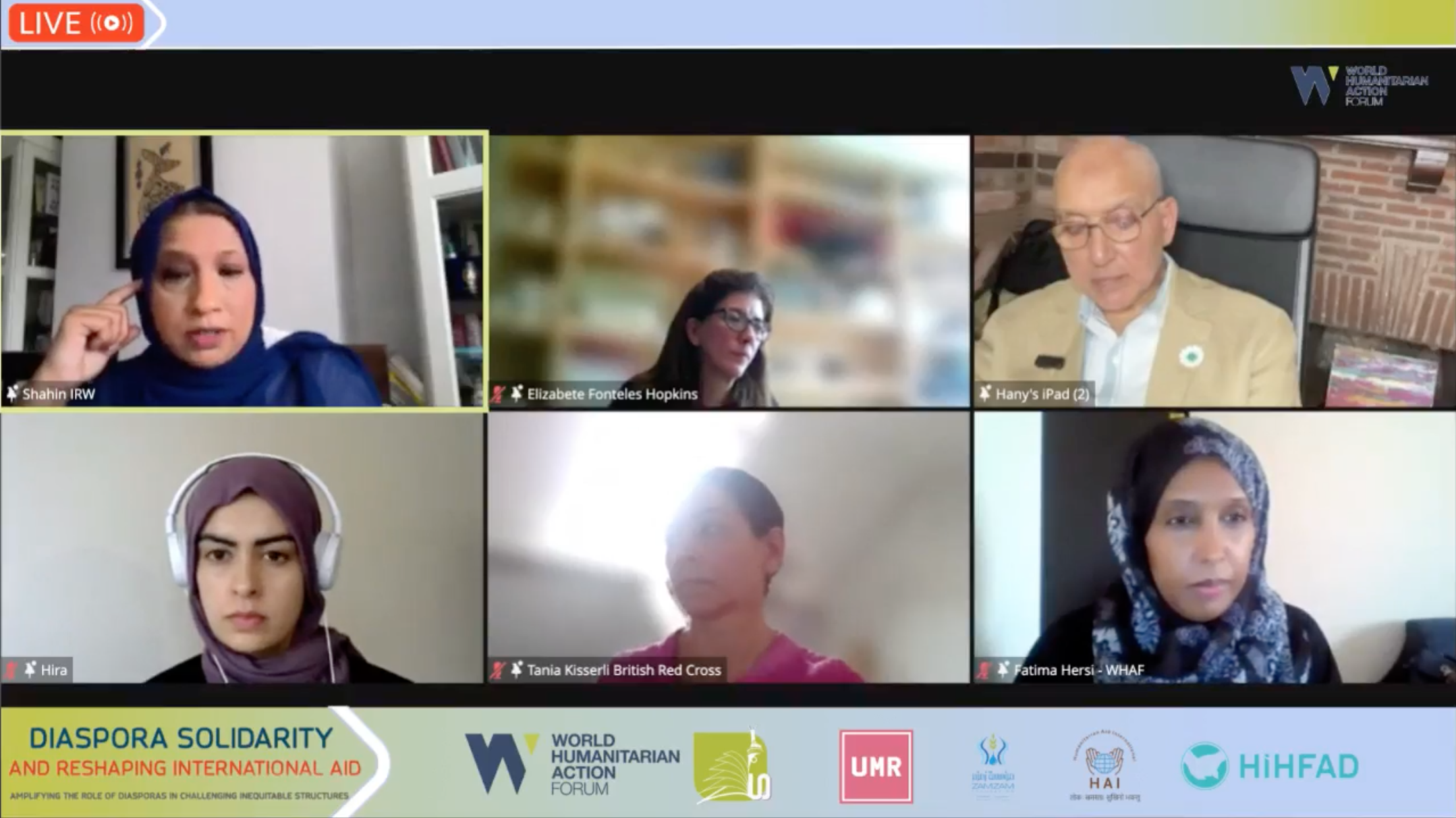The World Humanitarian Action Forum (WHAF) organised a series of consultative workshops on the topic of “Diaspora Solidarity and reshaping inequitable structures and systems” supported by the British Red Cross. These workshops began with an opening session on Tuesday, September 12, 2023, attended by more than 140 participants, including professionals and researchers in the humanitarian field from 26 countries.
The opening session featured extensive contributions from humanitarian organisations and experts, including introductory presentations and four hours of in-depth discussions. Representatives from WHAF, the British Red C

ross, and Islamic Relief Worldwide participated in the opening session.
The first session focused on insights and experiences of diaspora organisations, featuring speakers from “Hand In Hand” for Development and Relief and UMR.
The second session included representatives from HAI and “Takaful Al-Sham,” discussing local perspectives on the role of expatriates.
The third session involved speakers from ZAMZAM, Islamic Relief, and a humanitarian writer and researcher, discussing strategies for networking and collaboration.
The fourth session featured representatives from Internews Europe,
DEMAC, and SHABAKA, addressing the strengthening of expatriate organizations.


In addition to these workshop sessions, the forum conducted three special workshops dedicated to Syria, Pakistan, and Somalia, with selected participants from relevant organisations, addressing country-specific contexts.
Some key recommendations from these workshops include:
1. Enhancing the voice of expatriates through active participation in global forums and coordination mechanisms, aiming to unify Southern representation for social and political impact.
2. Seeking long-term impact-oriented solutions.
3. Encouraging greater youth participation in their home countries’ issues, with increased promotional efforts to attract and motivate them.
4. Serious consideration of donor culture to better understand their impact and direct contributions effectively.
5. Directing support toward local systems and contributing to sustainability and development.
6. Adapting to rapid global changes such as climate change and technological advancements and addressing their negative impacts.
7. Ensuring better exchange and participation among all stakeholders to ensure broader and more diverse representation in decision-making.
8. Giving more serious thought to the impact of expatriates and achieving a balance between local and global roles.
Participants expressed their gratitude for participating in the program and looked forward to engaging in other meaningful initiatives.
Opening and first session:
Second session:
Third session:
Fourth session:





